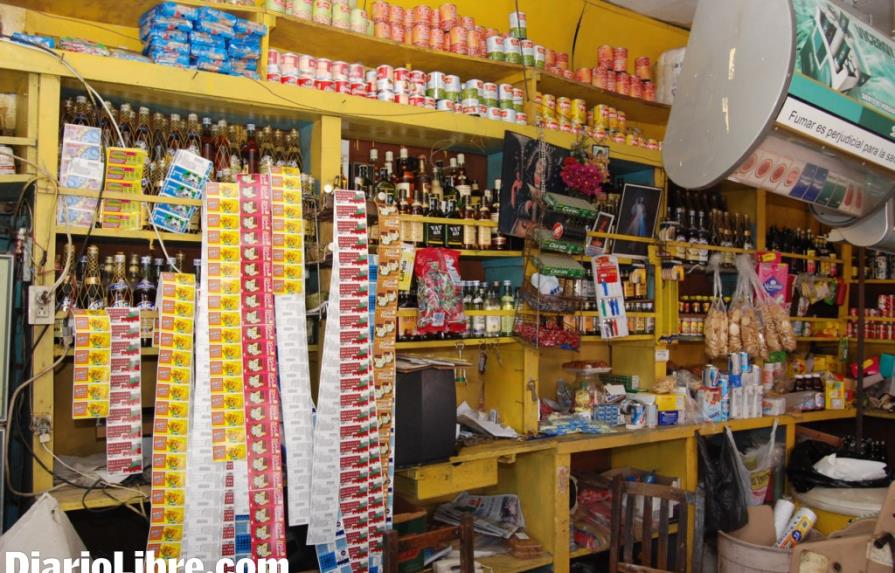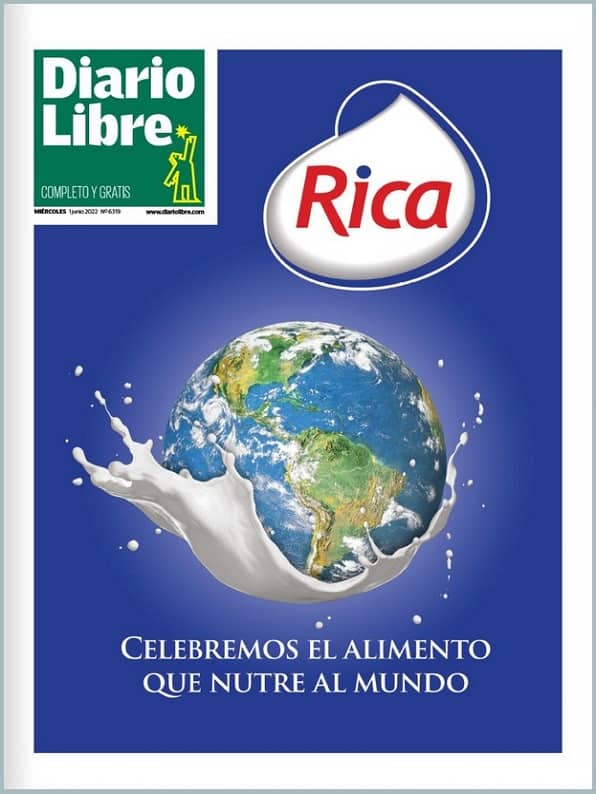Fear of taxes feeds informality in Dominican Republic
As of 14 April, 2,534 companies had formalized their status

SD. The micro, small and medium enterprises (Mipymes) that want to legalize their operations, have to face the challenge of competing against their counterparts that do not pay, nor do they want to pay, taxes. This, in turn, causes that ever more persons wish to remain within the large number of informal workers that exist in the Dominican Republic.
"Here, we are not legalized, because the legalization process requires a lot of tax payments and a lot of expenses, because in addition you have to pay an accountant to take care of the books in a small business, and this implies an expense with the accountant, you have to pay the government and you have to sell more expensively," noted the manager of the Colmado D'Oleo, which is located in the Millon sector of the capital.
In addition, the merchant said that if there really is any advantage to being legalized, they have yet to explain it to him.
Nevertheless, to hear it told by the vice-president of the Santo Domingo Chamber of Commerce and Production, Fernando Ferran, although legalization has many advantages, such as being able to sell to the state, have access to credit in an easier manner through the formal banking system, and the protection of Social Security, it also represents several fiscal commitments.
"What the people perceive as a disadvantage of the legalization is the fact that they are going to have to begin to pay taxes. This is the greatest fear, paying taxes that one avoids when one is not a formal entity," Ferran pointed out.
In addition, he referred to another of the disadvantages which the informal sector stresses, which is they have to deal with a series of bureaucratic processes.
But in spite of those factors, the legalization of businesses is going forward, at least in the capital, where the number of companies that have acquired their commercial license in the Chamber of Commerce of Santo Domingo, increased by 27% between 2012 and 2013.
Last year, 142 individuals registered their businesses and there were 10,388 businesses created. These were motivated by the large credit program that the government has been promoting and because of the fulfillment with Law 488-08, which requires the public institutions to acquire from the Pymes between 15% and 20% of the government purchases.
Although as of 14 April of this year there have been 2,534 companies registered, the Chamber notes a slight, 5%, reduction with respect to the same period in 2013. The executive vice-president of the Santo Domingo Chamber of Commerce and Production pointed out that this is due to the fact that during the January-March period of last year the Tax Amnesty program was in force, which allowed for a greater legalization of businesses.
Nevertheless, when this year is compared with 2012, a 20% increase can be seen.
There is talk which says that between 60 to 65% of the micro-businesses created in the country fail before their first year of operation.
Doing Business report
The Doing Business report stresses that the Dominican Republic is one of the countries, among 189, with the fewest facilities for doing business and places the country at number 117. With regard to the facilities for opening a business, the report places the country at 144. In this report the Dominican Republic is below 116 countries such as Chile, Panama, Trinidad and Tobago, Colombia, Peru and Guatemala and the rest of Central America with the exception of Honduras, besides other nations with different economies with regards to the ease of creating businesses.
"Here, we are not legalized, because the legalization process requires a lot of tax payments and a lot of expenses, because in addition you have to pay an accountant to take care of the books in a small business, and this implies an expense with the accountant, you have to pay the government and you have to sell more expensively," noted the manager of the Colmado D'Oleo, which is located in the Millon sector of the capital.
In addition, the merchant said that if there really is any advantage to being legalized, they have yet to explain it to him.
Nevertheless, to hear it told by the vice-president of the Santo Domingo Chamber of Commerce and Production, Fernando Ferran, although legalization has many advantages, such as being able to sell to the state, have access to credit in an easier manner through the formal banking system, and the protection of Social Security, it also represents several fiscal commitments.
"What the people perceive as a disadvantage of the legalization is the fact that they are going to have to begin to pay taxes. This is the greatest fear, paying taxes that one avoids when one is not a formal entity," Ferran pointed out.
In addition, he referred to another of the disadvantages which the informal sector stresses, which is they have to deal with a series of bureaucratic processes.
But in spite of those factors, the legalization of businesses is going forward, at least in the capital, where the number of companies that have acquired their commercial license in the Chamber of Commerce of Santo Domingo, increased by 27% between 2012 and 2013.
Last year, 142 individuals registered their businesses and there were 10,388 businesses created. These were motivated by the large credit program that the government has been promoting and because of the fulfillment with Law 488-08, which requires the public institutions to acquire from the Pymes between 15% and 20% of the government purchases.
Although as of 14 April of this year there have been 2,534 companies registered, the Chamber notes a slight, 5%, reduction with respect to the same period in 2013. The executive vice-president of the Santo Domingo Chamber of Commerce and Production pointed out that this is due to the fact that during the January-March period of last year the Tax Amnesty program was in force, which allowed for a greater legalization of businesses.
Nevertheless, when this year is compared with 2012, a 20% increase can be seen.
There is talk which says that between 60 to 65% of the micro-businesses created in the country fail before their first year of operation.
Doing Business report
The Doing Business report stresses that the Dominican Republic is one of the countries, among 189, with the fewest facilities for doing business and places the country at number 117. With regard to the facilities for opening a business, the report places the country at 144. In this report the Dominican Republic is below 116 countries such as Chile, Panama, Trinidad and Tobago, Colombia, Peru and Guatemala and the rest of Central America with the exception of Honduras, besides other nations with different economies with regards to the ease of creating businesses.


 Amílcar Nivar
Amílcar Nivar
 Amílcar Nivar
Amílcar Nivar